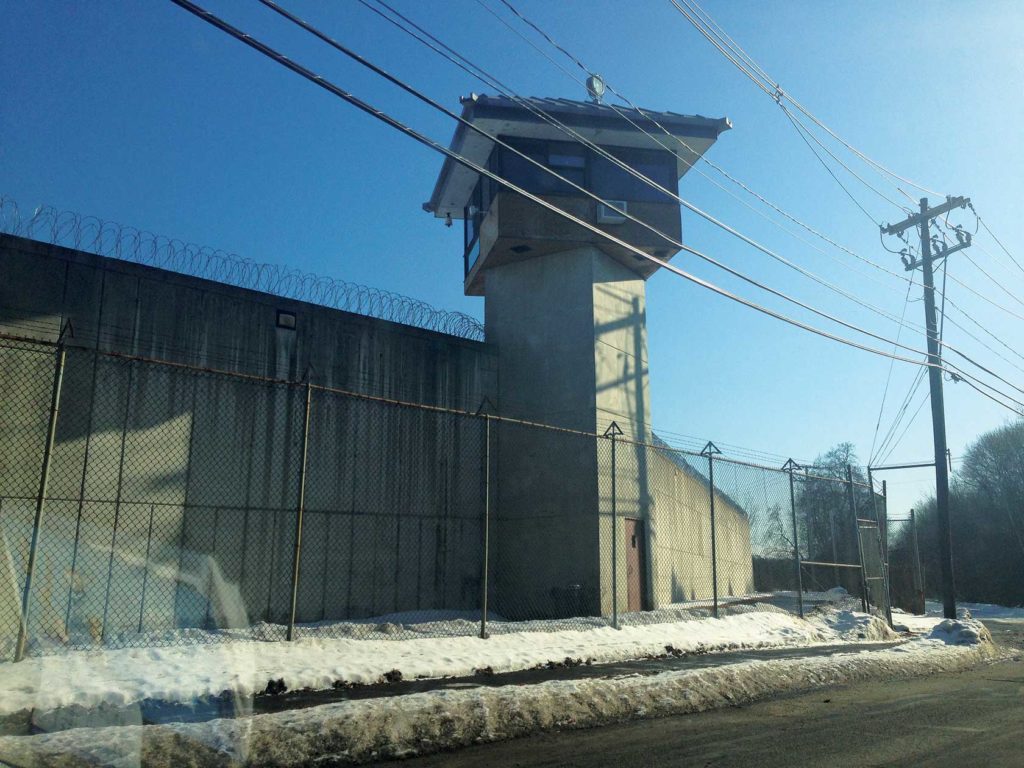
Members of the Democracy Behind Bars Coalition, a group of elected officials and activists, met Monday to show support for new legislation aimed at protecting the voting rights of incarcerated residents in Massachusetts. The coalition is led by the Roxbury-based National Council for Incarcerated and Formerly Incarcerated Women and Girls and Families for Justice as Healing.
The group that gathered via Zoom Monday morning included state Sens Adam Hinds and Sonia Chang-Diaz, who have been a part of crafting the legislation together with Rep. Liz Miranda, whose name is on the House bill. Legislators were joined by gubernatorial candidates Professor Danielle Allen and Rep. Ben Downing, as well as Rep. Lindsay Sabadosa, Boston City Councilor Julia Mejia, and representatives from Mass POWER, Neighbor to Neighbor and The Sentencing Project.
As part of a broader “Get Out the Vote Behind the Wall” campaign, the virtual gathering Monday morning centered support for the jail-based voting bill H. 836 and S. 474, which would ensure that those held on misdemeanor charges or awaiting trial get access to voting materials, retain their eligibility and are reminded of their rights. In addition, it looks to ensure those serving time on felony charges know their voting rights upon release. As of 2000, persons in Massachusetts with felony convictions have the right to vote following the completion of their sentence.
Hinds said the bill has been in the works for the past year, after elected officials surveyed the Massachusetts Sheriff’s Association to gather information on the dissemination of voting materials in state-run facilities.
“Seeing if they could confirm that everyone in a house of correction was informed of the election, of deadlines, [was] provided assistance, [had] absentee ballots [made] available. And the response was shocking. We essentially heard some were working to take steps, but others certainly were not,” he said.
Hinds continued, saying, “It raised this reality that Massachusetts is not immune from having citizens denied mutual access to the ballot.”
Miranda echoed his point, telling the group gathered Monday, “We often talk about Massachusetts liberalism. I like to call it the faux liberalism. It’s like ‘see no evil, hear no evil, do no evil.’ But we’re no exception,” she said. “And I think that this sense of exceptionalism, the bastion of democracy, needs to be really cut down because it’s not happening in many of our communities.”
Stand-alone legislation H. 836 and S. 474 is also reflected in Amendment 1 to the VOTES Act before the Senate. The VOTES Act already has language to expand access for incarcerated voters, as well as making mail-in voting permanent, expanding early in-person voting options and implementing same-day voter registration.
Amendment 1 and H. 836 and S. 474 take the language further — giving exact specifications for how information should be disseminated and voter registration kept up-to-date.
Other amendments on the bill include those proposed by Chang-Diaz, which include having correctional facilities become voter registration sites and pre-registering voters upon release.
“The amendments put in place specific accountability measures at our carceral institutions, rather than relying on the goodwill of the system,” Chang-Diaz said Monday. “This is the system that has brutalized so many and shows no signs of changing internally. So we need to put in place those specific provisions to make these rights real in practice.”
The Joint Committee on Election Laws hearing on Hinds amendment is set for Wednesday, Oct. 6, as is the greater referendum on the VOTES Act in the Senate. (Due to the Banner print publication schedule, the outcomes will not be available in time for this story.)
In the meeting Monday, Kristina Mensik, campaigns director with The National Council for Incarcerated and Formerly Incarcerated Women and Girls, commented on the momentum of their mission.
“For the first time in Massachusetts history, legislation on jail-based voting advanced out of committee and will be voted on in the Senate this week. That is historic on its own.”






